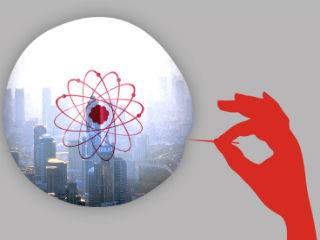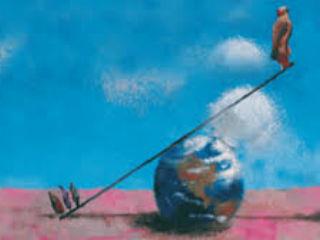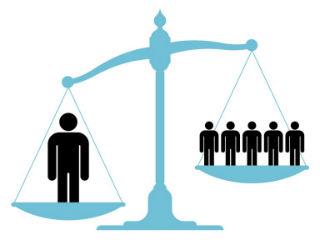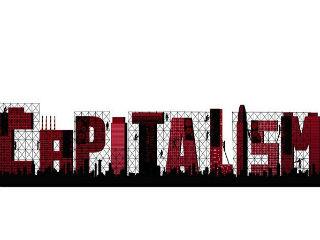
Painful coexistence
By: EBR | Wednesday, September 6, 2017
How do we deal with, and cope with, Jihadi terrorism?

The carbon bubble is soon here - Can we prevent its burst?
By: EBR | Wednesday, September 6, 2017
In the Copenhagen Climate Conference in 2009, the international community made history: for the first time ever it set a measurable target in the fight against climate change

Taiwan, a valuable partner for SDGs—True Universality
By: EBR | Tuesday, September 5, 2017
“As we embark on this great collective journey, we pledge that no one will be left behind”—Transforming Our World: the 2030 Agenda for Sustainable Development

The real reason you can’t put down your phone
By: EBR | Friday, September 1, 2017
Ever had that moment of panic when your smartphone is down to 1% battery and you don’t have a charger?

This developed country’s shadow economy is worth one-fifth of its GDP
By: EBR | Friday, September 1, 2017
Some countries have much larger shadow or unofficial economies than others. Greece's shadow economy is worth over a fifth of its total output, and Italy’s isn't far behind.

Yes, smartphones are destroying a generation, but not of kids
By: EBR | Friday, September 1, 2017
Quickly, now: Go rip a smartphone out of the hands of the nearest teen. If you have a teen child of your own, you can start there—or if you have kids under 13, you can take away whatever device they’re presently using

5 commandments for tycoons and other power players in a shifting world order
By: EBR | Wednesday, August 30, 2017
From West to East and North to South, global power structures and mechanisms are shifting, confirming the premises of a fast emerging world order

5 things we learned from one of the world’s biggest surveys of young people
By: EBR | Tuesday, August 29, 2017
Young people feel that they’re not being listened to by global decision makers. But with over half of the world’s population under the age of 30, it won’t be long before they will be making their voices heard

This theory about inequality might have just been debunked
By: EBR | Friday, August 25, 2017
A world where a few people have most of the wealth motivates others who are poor to strive to earn more. And when they do, they’ll invest in businesses and other areas of the economy. That’s the argument for inequality. But it’s wrong

Three quarters of people think the system is rigged against them
By: EBR | Friday, August 25, 2017
The 2017 Edelman Trust Barometer found what it described as “an implosion of confidence” around the world

Upgrading today’s capitalism
By: EBR | Thursday, August 24, 2017
Capitalism in its current form is neither fair nor sustainable

Humans are hard-wired to hate networking
By: EBR | Wednesday, August 23, 2017
If you loathe the awkwardness and insincerity of networking, you’re not alone. But it needn’t be that way

Today’s leaders require a new sense of self
By: EBR | Wednesday, August 23, 2017
What career transformation really means in a world with few if any guarantees

The moral duty of the elites
By: EBR | Monday, August 21, 2017
It is the moral duty of the elite to avert global disaster
Four dangerous assumptions about human trafficking
By: EBR | Friday, August 18, 2017
We should be more realistic about how we identify and tackle the problem of human exploitation
Artificial Intelligence will transform universities
By: EBR | Thursday, August 17, 2017
Artificial Intelligence (AI) is a technology whose time has come
German political update: Merkel’s choice
By: EBR | Tuesday, August 8, 2017
Angela Merkel looks set for a comfortable win in next month’s German elections
How to make democracy work in the digital age
By: EBR | Monday, August 7, 2017
Digital democracy has the ultimate benefit that it supports society’s historical achievements

France becomes the world No 1 for soft power
By: EBR | Friday, August 4, 2017
France is the most powerful nation in the world. At least, it is when it comes to a certain type of power.

Cybersecurity: The role of the board
By: EBR | Friday, August 4, 2017
A three-step process for board directors to start improving cyber-oversight



 By: N. Peter Kramer
By: N. Peter Kramer
